Sepsis: Ambulance call handlers 'must spot condition'
- Published
Attending her graduation, Dr Heather Duncan had no idea how seriously ill she was
Ambulance staff who answer 999 calls must be given more information about sepsis, doctors and patients have said.
Ambulance service emergency call handlers have more than 30 protocol cards for dealing with different illnesses - but not for sepsis.
A headteacher from Caerphilly said she spent more than two weeks in a coma when her sepsis was misdiagnosed.
The Welsh Ambulance Service said sepsis shares symptoms with many other conditions.
Sepsis occurs when the body's immune system becomes overwhelmed by an infection, leading to organ failure and tissue damage. It kills about 2,500 people in Wales every year.
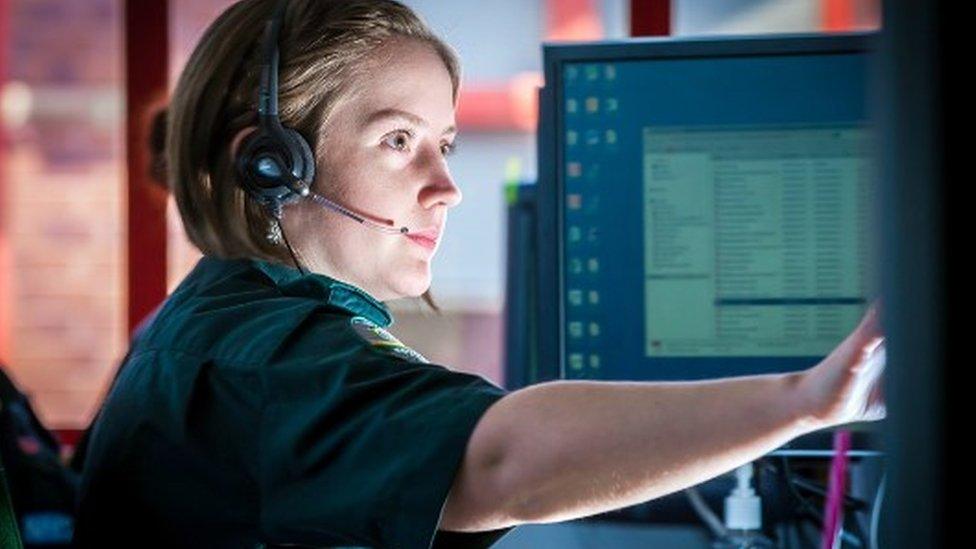
The Welsh Ambulance Service said sepsis was too complicated to diagnose over a 999 call
Headteacher Dr Heather Duncan fell ill the day after she graduated with a PhD in 2013.
Although she described symptoms such as profuse sweating, tiredness and feeling "removed" from herself, she had never heard of sepsis and was unaware how seriously ill she was.
"Twenty-four hours later I was fighting for my life in intensive care," she said.
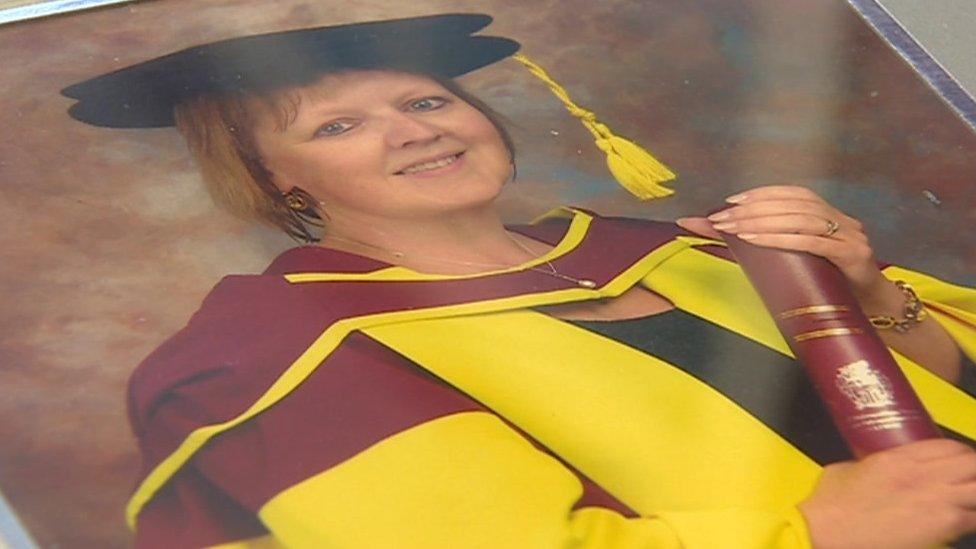
Dr Duncan said she felt "dreadful" at her PhD graduation ceremony but had no idea she would be "fighting for her life" 24 hours later
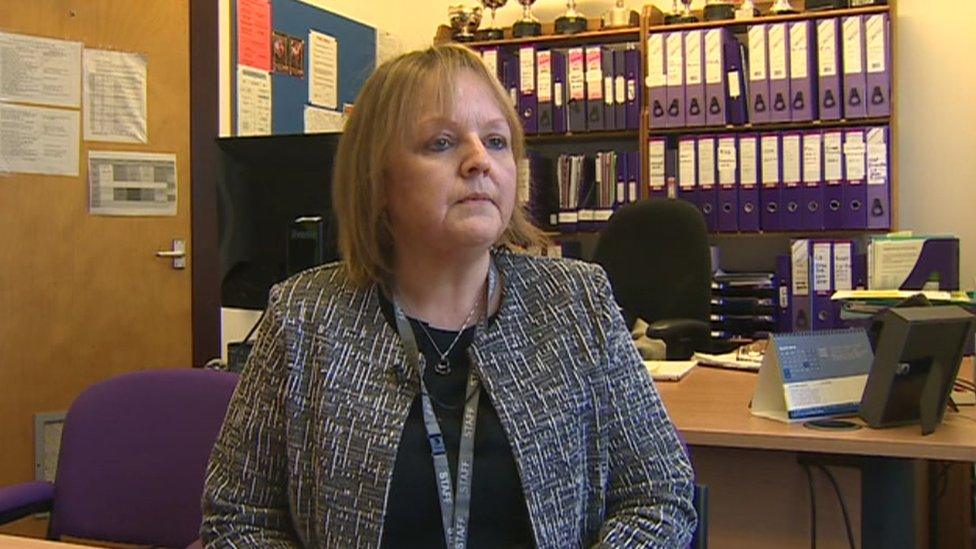
Dr Duncan said she feels lucky to be alive
After seeing her GP, she was diagnosed with gastroenteritis, which is associated with diarrhoea and vomiting.
Soon after, she fell unconscious and spent more than two weeks in a coma suffering with septic shock.
Doctors only discovered she had sepsis when an out-of-hours doctor suspected she had the infection and surgeons opened up her abdomen, where they found two litres of "poison".
Sepsis: What is it - and how to spot it?
It was a "miracle" she pulled through, Dr Duncan said, but the septic shock caused her body to shut down, diverting all blood to the major organs in an effort to save her life.
While the response worked, it led to severe necrosis - cell death - in her toes. She would later need to have all her toes amputated.
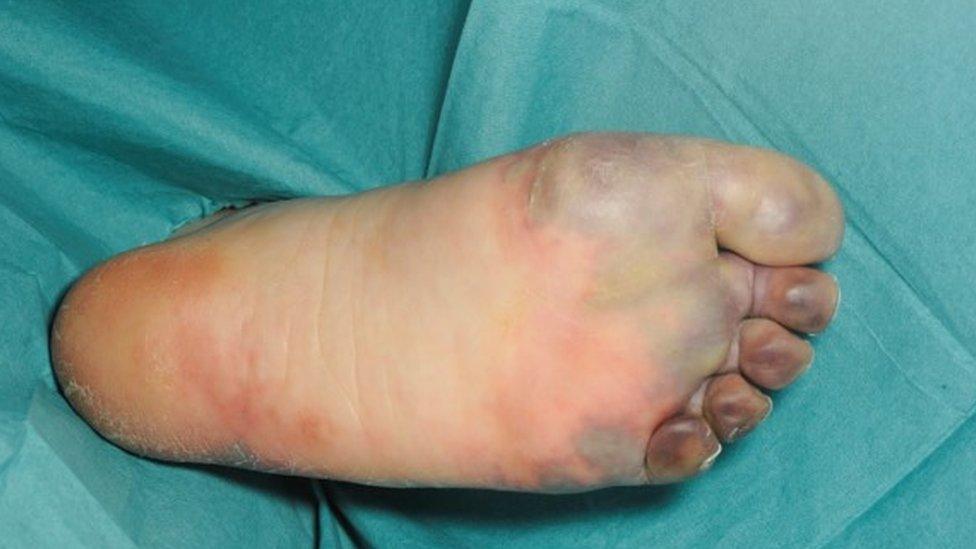
Dr Duncan needed to have all her toes amputated, which causes her significant daily pain
Dr Duncan said she was "shocked" to hear ambulance staff are not looking for signs of sepsis, given how quickly it can kill.
"It frightens me because had we had any other out-of-hours doctor, I would have been dead, quite simply," she said.
"And that's terrifying that on the morning of that same day, I was told I had gastroenteritis because no-one joined the dots of the symptoms.
"So it is absolutely vital that the ambulance service [considers sepsis] because every minute matters when you have got sepsis."

While she was in a coma, Dr Duncan's husband was speaking to her about planning their wedding
Dr Paul Morgan, sepsis leader for Cardiff and Vale University Health Board, said the situation is "not acceptable" and called for a change.
"We have been trying to press the case for the ambulance service to have some sort of set response for cases of sepsis," he said.
"The Royal College of Paramedics do have a sepsis protocol, so why that hasn't been introduced by the Welsh Ambulance Service, I'm not really sure."
But the ambulance service said the complexity of sepsis makes it very difficult for a call handler to make a judgement on the condition over the phone.
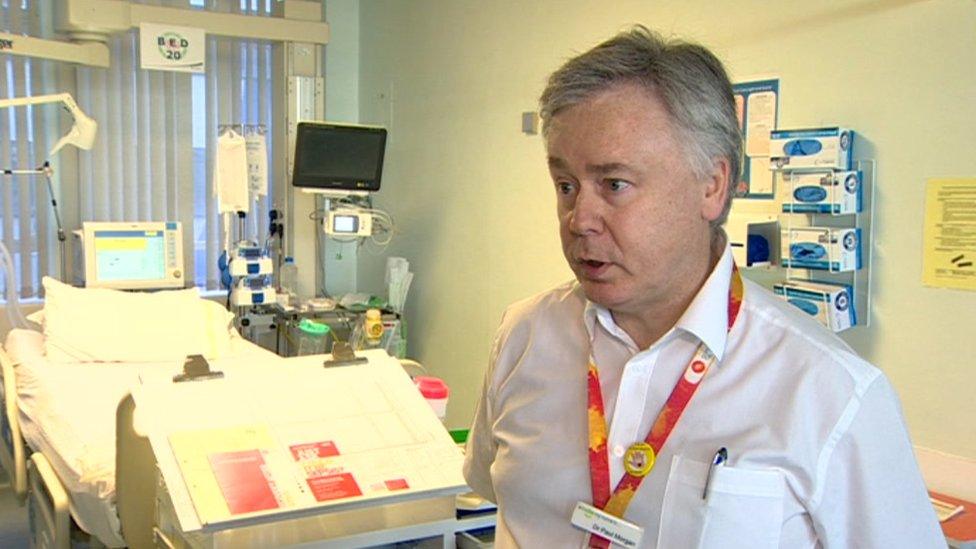
Dr Paul Morgan questioned why the Welsh Ambulance Service did not have a sepsis protocol when the Royal College of Paramedics does
Dr Jonathan Whelan, assistant medical director for the service, said call handlers prioritised emergencies using a system of 32 cards, which list broad conditions such as shortness of breath, chest pain, or falls.
"Sepsis does not have an individual card, as the symptoms that relate to it are often related to other ailments. Sepsis can also manifest in a variety of different ways," said Dr Whelan.
Dr Whelan added: "Our prioritisation system aims to provide the most appropriate response to all patients, with the quickest response possible to the most seriously ill people."
- Published13 September 2018
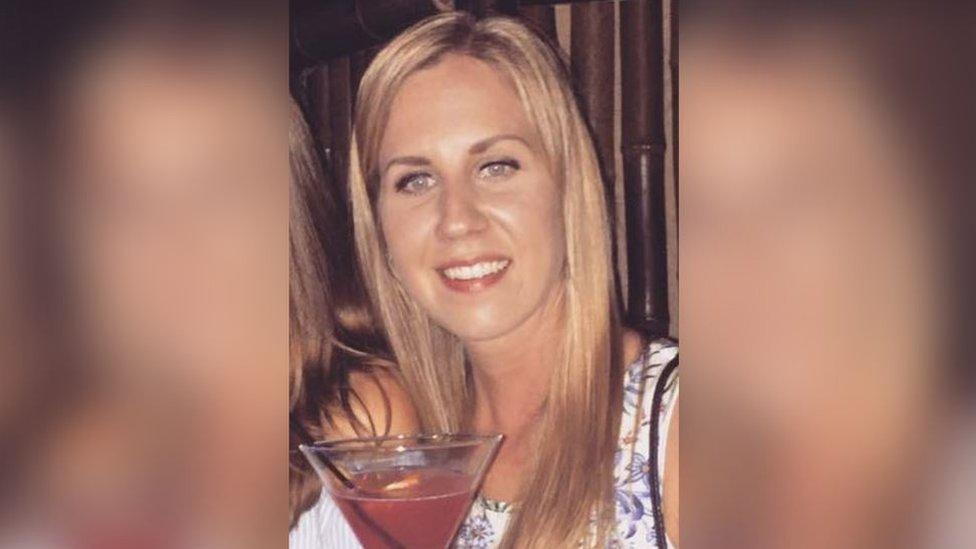
- Published3 August 2018

- Published1 March 2018
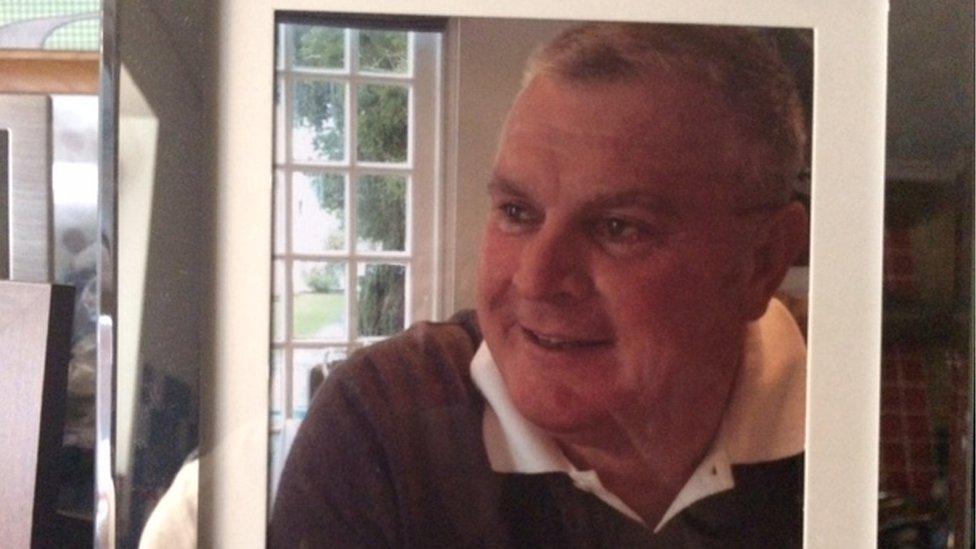
- Published8 January 2018

- Published17 January 2017
